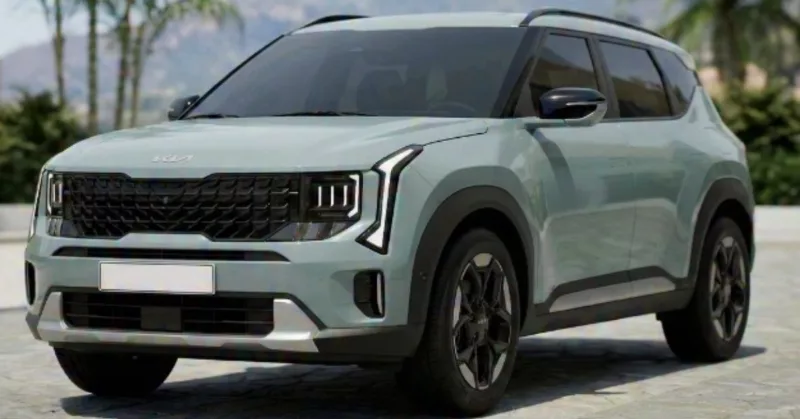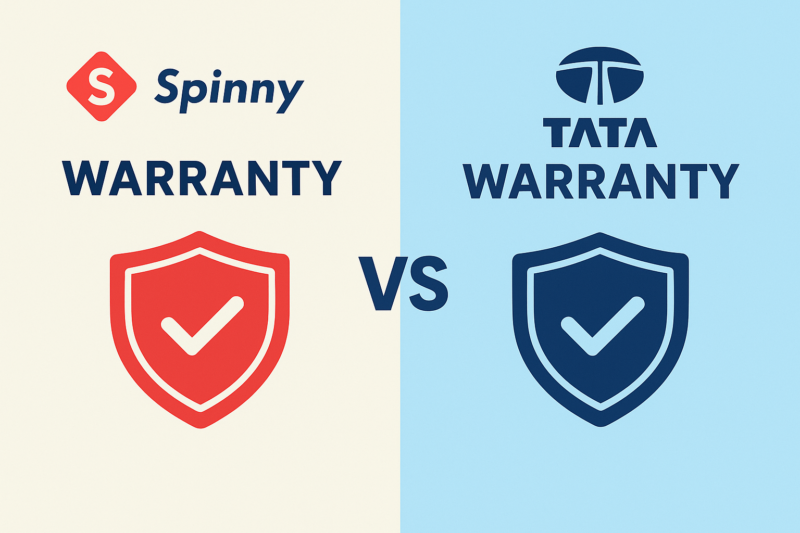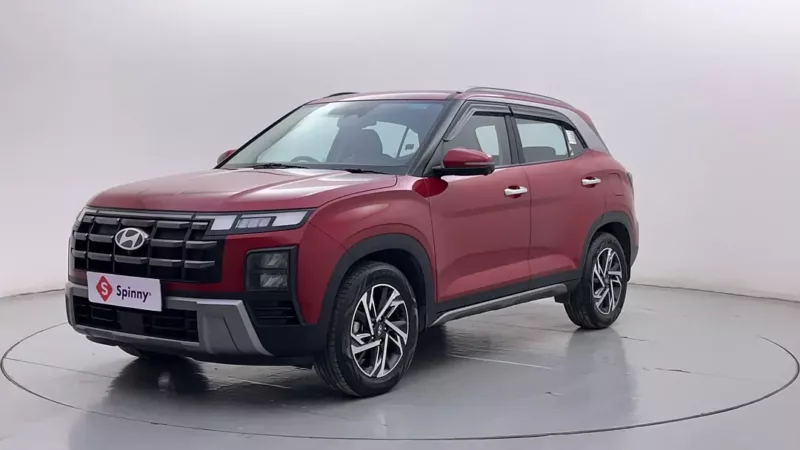Have you ever felt that every other car on the road is a Maruti Baleno? Well, such scenarios do not seem too unusual for a car that has sold over 10 lakh units in the last 8 years. Despite rivalling strong challengers in the form of the Hyundai i20 and Tata Altroz, the Maruti Baleno is the best-selling premium hatchback in India and often tops the overall car sales chart. With Maruti Baleno, the Indo-Japanese carmaker struck the right balance between comfort, engine refinement, and what is most important to Indians, mileage. If the magnetic proposition of the Maruti Baleno is attracting you, here is a complete guide to buying a Maruti Baleno that will help you discern things accurately and bring home the best variant for you.
Maruti Baleno Specifications
Maruti Suzuki Baleno Engine and Transmission | ||||
Engine | 1-2 litre Naturally Aspirated Petrol | 1.2-litre Naturally Aspirated Petrol with CNG kit | ||
Transmission | 5-speed manual gearbox | 5-speed AMT | 5-speed manual gearbox | |
Power | 90 PS | 77.49 PS | ||
Torque | 113 Nm | 98.5 Nm | ||
Mileage | 22.3 km/l | 22.94 km/l | 30.61 km/kg | |
Maruti Suzuki Baleno Dimensions | ||||
Length | 3,990 mm | |||
Width | 1,745 mm | |||
Height | 1,500 mm | |||
Wheelbase | 2,520 mm | |||
Boot Space | 318 litres (petrol) | |||
Maruti Suzuki Baleno Safety Features | ||||
Airbags | 2 airbags standard and 6 airbags in Zeta and Alpha variant | |||
ABS with EBD | Standard | |||
Rear Parking Sensors | Standard | |||
Parking Camera | Rear camera in the Zeta variant 360-degree camera in the Alpha variant | |||
Disc Brake | On front wheels | |||
Electronic Stability Program | On all AMT variants | |||
Tyre Pressure Monitoring System | NA | |||
ISOFIX mounts | Standard | |||
Hill Hold Assist | On all AMT variants | |||
Hill Descent Control | NA | |||
Why you should consider the Maruti Suzuki Baleno
If you are considering a premium hatchback as your next car, the Maruti Baleno should be on your list. Here are the most appealing qualities of the Maruti Baleno.
Refined & Frugal Powertrain
No matter how feature-rich, spacious, or comfortable a car is, if the refinement of its engine is not up to the mark, buyers will not find it a good deal. This is precisely where Maruti’s prowess lies and the Indo-Japanese carmaker has built a reputation for offering their cars with uber-refined engines. The 1.2-litre Dualjet petrol engine of the Maruti Baleno operates with minimum NVH levels, delivering a smooth driving experience.
What makes Baleno’s powertrain even more attractive is the pocket-friendly mileage. The Maruti Baleno delivers 22.35 – 22.94 km/l mileage with its petrol engine, which is significantly more than every other petrol powertrain in the segment. The Dualjet engine of the Baleno features one injector for each intake port, yielding a better air-fuel mixture. This leads to more efficient combustion and thereby a better fuel economy. Combined with this is an idle start/stop system that shuts the engine down when the car idles such as in heavy traffic or waiting for traffic lights to change. Being one of the most fuel-efficient cars in India has always helped Maruti Baleno stay strong in the game.
CNG Compatibility
With the rising prices of petrol and diesel engines losing favour with new emission norms, CNG is a great option for those looking for low-cost car ownership. The Maruti Baleno is the only car in its segment to offer a CNG-powered powertrain and with the fuel efficiency of 30.61 km/kg, it truly makes a dream package for those looking to own a CNG-powered premium hatchback.
Premium Cabin
The Maruti Baleno is spacious enough to comfortably accommodate 5 passengers, which is something you expect from a car costing north of Rs 6.5 lakh. However, with cosy seats and neatly designed interiors, there is a balance of sophistication and modernity in the Baleno’s cabin. Moreover, the Baleno’s suspension is neither too hard nor too soft and offers the perfect balance of bump-smothering and body control at higher speeds.

As it competes with the feature-rich package of the Hyundai i20, Maruti has loaded the Baleno with many upmarket features and a couple of segment-leading ones in the form of a head-up display and 360-degree camera. While the 360-degree camera keeps you updated about everything happening outside the car through the infotainment system, the head-up display is a transparent panel that displays some important information such as speed, warning signals, and navigation without taking your attention off the road ahead.
Why should you not consider the Maruti Suzuki Baleno?
No car is absolutely perfect. Here is what you probably won’t like on the Maruti Baleno that can make you consider its rivals.
Missing Features
While Maruti has given the Baleno more than enough features to provide a premium experience to passengers, the Baleno misses some features that its rivals offer. These features include a cooled glovebox, tyre pressure monitor system, digital instrument cluster, a sunroof, and a wireless phone charger. The lack of a sunroof will be a significant point to consider as the Hyundai i20 offers it while the Tata Altroz is rumoured to be receiving a sunroof on some variants.
Unavailability of Turbo
The absence of turbocharged engines does put the Maruti Baleno behind both its rivals. Though the urban landscape is not a good place for high speeds, occasionally everyone wants to floor the accelerator hard on empty roads and enjoy some high-spirited performance. In such situations, the Maruti Baleno can leave you wanting and make you consider its rivals which offer turbocharged engines which have some vigour up their sleeves. The presence of the turbo petrol engine on the Fronx will pull many people away from the Baleno and you might want to consider the new compact crossover hatchback.
Better Automatic Rivals
In terms of the automatic transmission, Baleno’s rivals offer better options than Baleno’s AMT automatic. While the modern-day AMTs are far smoother than the ones that were offered earlier, they still do not match the agility of CVT, Torque converter, and DCT. The Hyundai i20 offers CVT automatic and DCT automatic, whereas the Tata Altroz offers DCT automatic.
Maruti Suzuki Baleno Variants
Maruti offers Baleno in nine variants, of which, two are CNG-powered and seven are petrol-powered. Here is the price of each variant of Maruti Baleno.
Maruti Suzuki Baleno Variants & Ex-Showroom Price | ||
Variant | Powertrain | Ex-Showroom Price |
Sigma | 1.2-litre petrol with manual transmission | Rs 6.61 lakh |
Delta | 1.2-litre petrol with manual transmission | Rs 7.45 lakh |
1.2-litre petrol with AMT | Rs 8 lakh | |
1.2-litre petrol+CNG with manual transmission | Rs 8.35 lakh | |
Zeta | 1.2-litre petrol with manual transmission | Rs 8.38 lakh |
1.2-litre petrol with AMT | Rs 8.93 lakh | |
1.2-litre petrol+CNG with manual transmission | Rs 9.28 lakh | |
Alpha | 1.2-litre petrol with manual transmission | Rs 9.33 lakh |
1.2-litre petrol with AMT | Rs 9.88 lakh | |
Best Maruti Suzuki Baleno Variant to Buy
If you are looking for Baleno on a budget, the base variant is a good deal from a value-for-money angle. This variant has enough features to satisfy most needs of a budget buyer and you can have some aftermarket features installed such as a music system, powered mirrors, wheel covers, and others. However, if you are looking for an automatic or a CNG-powered Baleno, we suggest skipping the Delta variant and opting for Zeta. The Zeta variant justifies its higher price over its inferiors given the availability of 6 airbags, voice assistant, connected car tech, tilt-telescopic steering adjustment, and more. All the same, if you want a fully-loaded Maruti Baleno, then the Alpha variant is a clear choice.
Maruti Suzuki Baleno Warranty and Service Cost
Maruti offers Baleno with a standard warranty of 2 years or 40,000 km and this warranty can be extended up to 5 years at some additional cost. Like all Maruti cars, the Baleno’s first and second services are done free of cost Annual service charges are approximately Rs 2,700 at 1 year/10,000 km, Rs 6,000 at 2 year/20,000 km, Rs 5,600 at 3 year/30,000 km, Rs 6,500 (petrol)| Rs 6,900 (CNG) at 4 year/40,000 km, and Rs 4,700 at 5 year/50,000 km.
Summary
Maruti took charge of the premium hatchback segment with the Baleno’s premium interior, refined as well as frugal powertrain, and CNG compatibility. While the Maruti Baleno has some limitations, it is ruling the roost with no problem whatsoever. Moreover, topping the overall sales chart despite being priced over Rs 6.5 lakh is a clear display of how well Baleno caters to the needs of Indian consumers. If you plan to join the group of Baleno owners, this buying guide will help you examine the car as per your suitability and bring home a variant that meets your needs.
FAQs about Maruti Suzuki Baleno
What are the safety features of the Maruti Baleno?
The safety features of the Maruti Baleno include up to six airbags, ABS with EBD, an electronic stability program (ESP), hill-hold assist, ISOFIX anchorages, rear parking sensors, and a 360-degree camera.
What is the mileage of the Maruti Baleno?
The Maruti Baleno delivers a mileage of 22.3 km/l from petrol-manual, 22.94 km/l from petrol-automatic, and 30.61 km/kg from CNG.
In which colours the Maruti Baleno is available?
The Maruti Baleno is available in 7 different colours – Pearl Arctic White, Pearl Midnight Black, Opulent Red, Grandeur Grey, Luxe Beige, Nexa Blue, and Splendid Silver.
Does the Maruti Baleno have a sunroof?
No, the Maruti Baleno does not feature a sunroof.
Which transmission options does the Maruti Baleno offer?
The transmission options available with the Maruti Baleno are a 5-speed manual gearbox and a 5-speed AMT.



